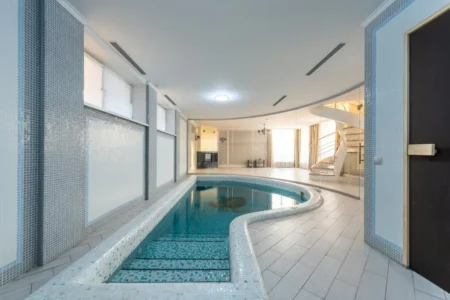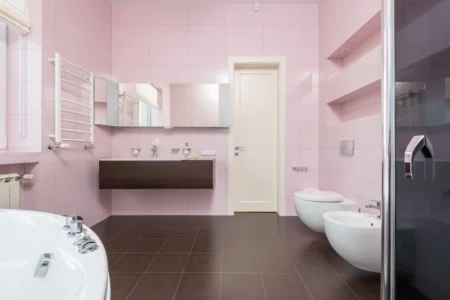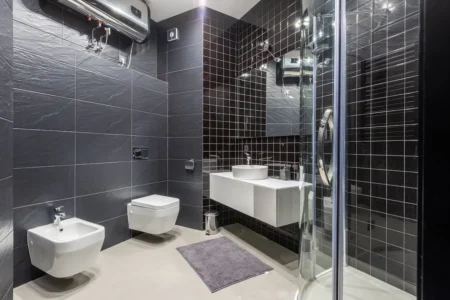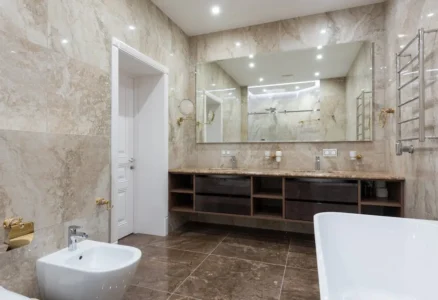Choosing the perfect swimming pool tiles is a crucial decision that goes beyond mere aesthetics. The right tiles can enhance the overall appeal of your pool while ensuring durability and safety. In this comprehensive guide, we will explore the key factors to consider and provide insights into the various types of pool tiles available in the market.
Understanding Your Pool’s Requirements
Before delving into the world of pool tiles, it’s essential to understand your pool’s unique requirements. Factors such as the type of pool, location, and usage patterns play a significant role in determining the most suitable tiles for your needs. Assessing these factors will guide you towards a well-informed decision.
Different Types of Pool Tiles
Ceramic Tiles
Ceramic tiles are a popular choice for pool owners due to their versatility and cost-effectiveness. They come in a wide range of colors and patterns, allowing for creative pool designs. However, it’s essential to note that ceramic tiles may require more maintenance compared to other options.
Porcelain Tiles
Porcelain tiles are known for their exceptional durability and resistance to wear and tear. They are an excellent choice for high-traffic pool areas. With advancements in technology, porcelain tiles now mimic the look of natural materials, providing a luxurious appearance to your pool.
Glass Tiles
Glass tiles add a touch of sophistication to any pool. Their reflective properties create a stunning visual effect, especially when used in areas with ample natural light. While glass tiles are aesthetically pleasing, it’s crucial to consider their slip resistance and maintenance requirements.
Stone Tiles
Stone tiles offer a natural and rustic charm to pool surroundings. Options like travertine and limestone provide a unique, textured finish. However, it’s important to choose stones with a low water-absorption rate to prevent damage over time.
Considerations for Pool Tile Selection
Durability
Ensuring the longevity of your pool tiles is paramount. Choose tiles that can withstand the constant exposure to water, chemicals, and varying temperatures. Porcelain and glass tiles, for instance, boast remarkable durability, making them suitable for long-term use.
Water Resistance
Given the aquatic environment, opt for tiles specifically designed for water resistance. Porous tiles may absorb water, leading to damage and discoloration. Water-resistant tiles, on the other hand, maintain their integrity, preserving the visual appeal of your pool.
Aesthetic Appeal
While durability is crucial, the visual appeal of your pool tiles should not be overlooked. Select tiles that complement the overall design theme of your pool area. Whether you prefer a modern, sleek look or a more natural aesthetic, there’s a diverse range of tiles to cater to every style.
Safety Features
The safety of swimmers is a top priority. Look for tiles with slip-resistant properties, especially if you have children or elderly individuals using the pool. Many manufacturers offer tiles with textured surfaces to minimize the risk of accidents.
Popular Trends in Pool Tile Designs
Staying updated with the latest trends can inspire your pool design. Current trends include mosaic patterns, gradient color schemes, and the use of iridescent tiles to create captivating visual effects. Exploring these trends can add a contemporary touch to your pool area.
Installation Tips for Pool Tiles
Proper installation is crucial for the longevity and functionality of your pool tiles. Follow these tips to ensure a seamless installation process.
Surface Preparation
Prepare the pool surface meticulously before tile installation. Ensure it is clean, dry, and free of any contaminants. A well-prepared surface provides a stable foundation for the tiles, preventing issues such as delamination.
Adhesive Selection
Use a high-quality adhesive specifically formulated for underwater applications. Choosing the right adhesive ensures a strong bond between the tiles and the pool surface, preventing them from detaching over time.
Grout and Sealant Considerations
Select grout and sealants that are resistant to water and chemicals. Proper grouting and sealing protect against water infiltration, preventing damage to the pool structure and maintaining the integrity of the tiles.
Maintenance of Pool Tiles
Regular maintenance is key to preserving the beauty of your pool tiles. Follow these guidelines to ensure longevity.
Clean the tiles regularly to remove any buildup of dirt, algae, or chemical residues. Use a non-abrasive cleaner to avoid damaging the tile surface. Additionally, inspect the grout and sealant periodically, addressing any issues promptly to prevent water infiltration.
Conclusion
Choosing the perfect swimming pool tiles involves a thoughtful consideration of factors such as durability, water resistance, aesthetic appeal, and safety features. By understanding the diverse options available and following proper installation and maintenance practices, you can create a visually stunning and long-lasting pool that enhances your outdoor space. Explore the latest trends, ask the right questions, and embark on the journey to transform your pool into a true oasis.
FAQs
How do I choose the right size of pool tiles?
Select pool tiles of an appropriate size based on your pool’s dimensions. Larger tiles can create a seamless look in larger pools, while smaller tiles may be more suitable for compact pool designs.
Can I use regular tiles for my pool?
It’s recommended to use tiles specifically designed for pools. Regular tiles may not have the required durability and water-resistant properties, leading to premature damage.
What is the average lifespan of pool tiles?
The lifespan of pool tiles depends on factors such as material, maintenance, and environmental conditions. High-quality tiles with proper care can last for decades.
Are glass tiles suitable for pool use?
Yes, glass tiles are suitable for pools, but it’s essential to ensure they have slip-resistant properties. Additionally, consider the maintenance requirements associated with glass tiles.
How can I prevent tile discoloration in my pool?
Regular cleaning and proper maintenance are essential to prevent tile discoloration. Avoid using harsh chemicals that can damage the tiles, and address any issues with grout or sealant promptly.










